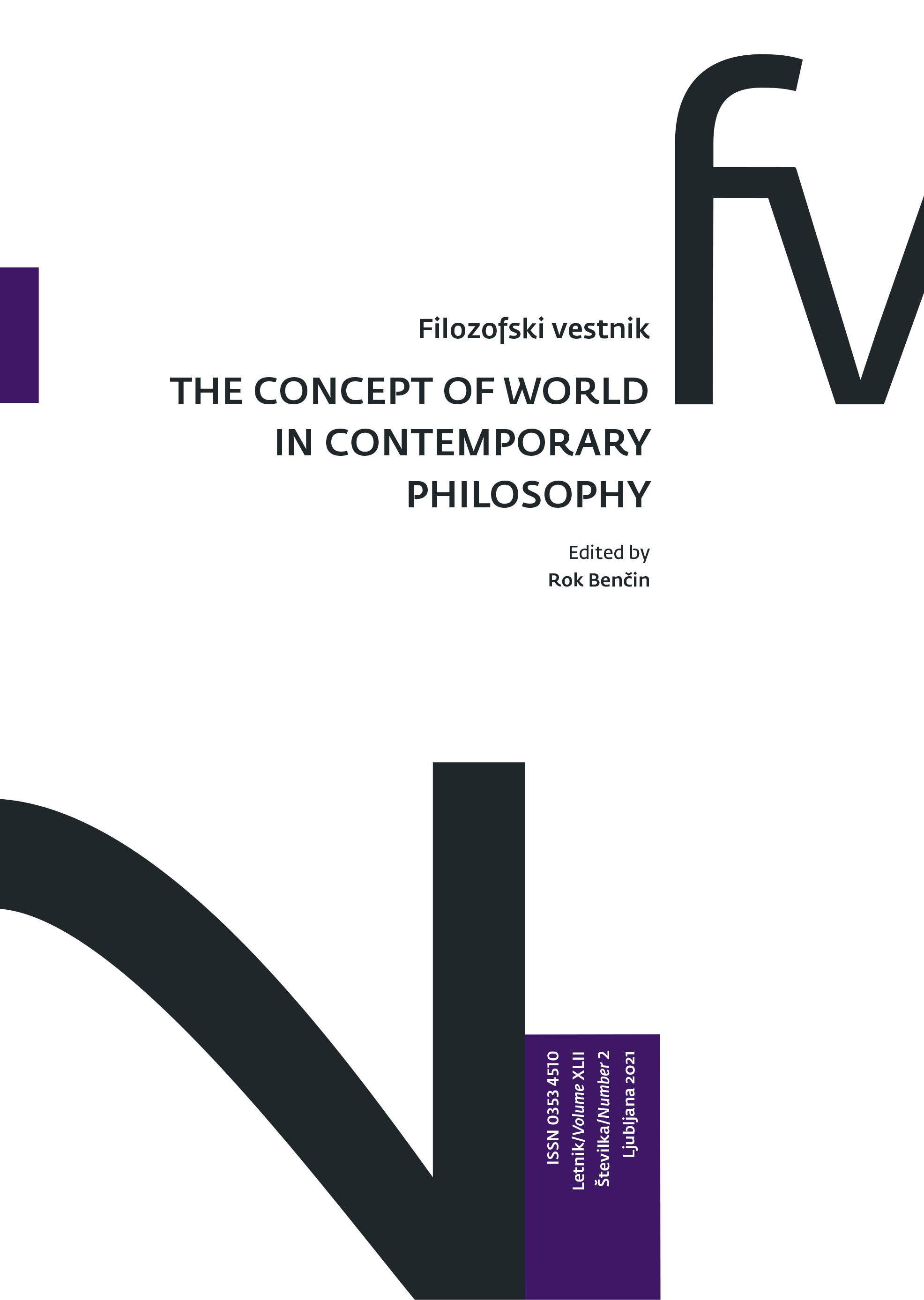Dispersed are we: roman svetov in svet romana v Med dejanji Virginie Woolf
DOI:
https://doi.org/10.3986/fv.42.2.11Ključne besede:
ideološki aparati, Benčin, transcendentalni okvir, literarni kanon, dialektika, razpršitev, nacionalna zgodovina, svet, delitev čutnega, Rancière, roman, subjektivnost, poenotenje, WoolfPovzetek
Na podlagi prihajajoče knjige Roka Benčina o konceptu sveta (mnoštvo resničnih svetov kot fikcijsko strukturiranih transcendentalnih okvirov) članek predlaga interpretacijo romana Between the Acts Virginie Woolf, osredotočeno na dialektiko razpršitve in enotnosti. Roman predstavlja mnoštvo razpršenih in fragmentiranih transcendentalnih okvirjev, ki se – zmerom neuspešno, a vedno znova – poskušajo združiti znotraj ideoloških aparatov (družina, religija, nacionalna zgodovina, literarni kanon). V tej neskončni dialektiki književnost zaseda edinstveno mesto, saj fikcijska struktura teh okvirjev ustvari transcendental-brezno, ki omogoča prehod od romana svetov v svet romana.
Prenosi
Literatura
Benčin, Rok, Rethinking the Concept of World: Towards Transcendental Multiplicity, Edinbourgh, Edinburgh University Press, à paraître.
Benčin, Rok, “Worlds as Transcendental and Political Fictions”, Filozofski vestnik, 42 (2/2021), pp. 221–243.
Briggs, Julia, Virginia Woolf : an Inner Life, Londres, Allen Lane, 2005.
Virginia Woolf, Between the Acts, Harmondsworth, Penguin, 1972.
Prenosi
Objavljeno
Verzije
- 2022-04-06 (2)
- 2021-12-31 (1)
Kako citirati
Številka
Rubrike
Licenca
Avtorske pravice (c) 2021 Avtorji

To delo je licencirano pod Creative Commons Priznanje avtorstva-Nekomercialno-Brez predelav 4.0 mednarodno licenco.
Avtorji jamčijo, da je delo njihova avtorska stvaritev, da v njem niso kršene avtorske pravice tretjih oseb ali kake druge pravice. V primeru zahtevkov tretjih oseb se avtorji zavezujejo, da bodo varovali interese založnika ter da bodo povrnili morebitno škodo.
Podrobneje v rubriki: Prispevki





